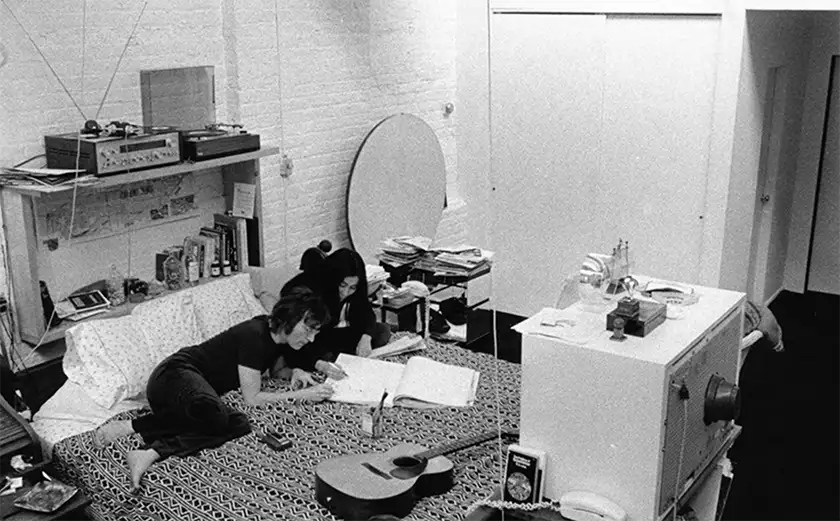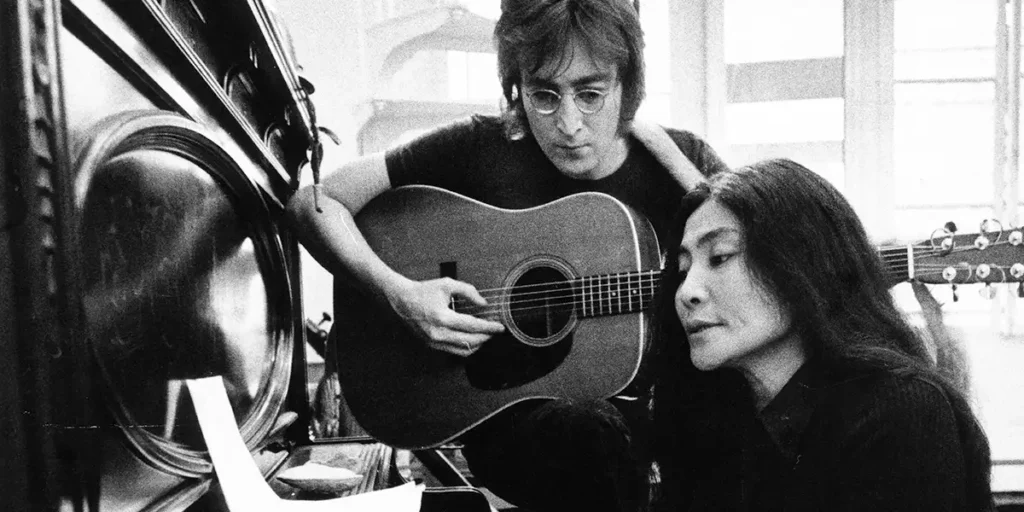One to One: John & Yoko is an affectionate look at the couple’s activism, but there’s nothing new here for Lennon devotees.
Directors: Kevin Macdonald & Sam Rice-Edwards
Genre: Documentary
Run Time: 100′
BFI London Film Festival Screening: October 15-20, 2024
World Premiere: Venice Film Festival
U.S. Release Date: April 11, 2025 in theaters
U.K. Release Date: TBA
It has been 44 years since John Lennon died. Enough time has passed, and enough films have been made about him and the Beatles for us to ask: what else is there to know? Yet, that doesn’t stop the documentaries coming. However, the offerings we’ve had this year show that they’re starting to repeat themselves. We’ve already had Daytime Revolution, which dealt with Lennon and Yoko Ono’s exploits when they moved to New York in 1971. Now we get Kevin MacDonald and Sam Rice-Edwards’ One to One: John & Yoko, which also deals with Lennon and Ono’s exploits when they moved to New York in 1971. Déjà-vu is a suitable reaction.
Like Daytime Revolution, One to One: John & Yoko is primarily focused on a single event. On 30th August 1972, Lennon performed his only publicly announced concerts after the breakup of the Beatles, namely a benefit gig for the Willowbrook State Hospital for disabled children in Staten Island. The footage from the concert is as enthralling and well-produced as you’d expect. As Lennon proclaims ‘Power To The People’, and urges those same people to ‘all shine on’, the music sounds as crisp and full of force as it must have done to those crowds in Madison Square Garden.
Of course, the focus must turn to how the gigs came to be. Despite the stacked lineup for the concerts (The likes of Roberta Flack and Stevie Wonder joined John and Yoko on stage), we only get to see Lennon or Ono perform their songs in full. MacDonald and Rice-Edwards’ focus is squarely on the couple, but the footage we get does make you wish to see the whole thing in full on a big screen.
MacDonald’s previous documentary, High and Low – John Galliano, put its subject in front of the camera to explain himself, but One to One: John & Yoko is mercifully shorn of the usual talking heads approach. Instead, we get an impressionistic montage of the era in which the concert took place. Footage of news reports and TV advertisements is intercut with interviews with Lennon and Ono, as they explain their new direction in life. The couple moved from luxury living in London to a two-room apartment in Brooklyn in 1971, as their social concerns became more of a theme in their creative endeavors.
If the idea that John and Yoko had a social conscience is revelatory to you, then One to One will be a treasure trove. From members of a performing choir protesting in front of Nixon to Jerry Rubin warming up a crowd with demands for revolution, we see that Lennon and Ono’s lives at this time were defined by standing up against monuments to the status quo.

The intercutting of TV footage reflects the couple’s routine and living quarters. As recreated in the documentary, Lennon and Yoko had their TV propped at the end of their bed, and would spend hours upon hours taking in whatever images it had to offer. This analog version of doomscrolling is recreated in the edit, cutting from adverts for bleach or Coke to newsreel from the Attica Prison riots, or napalm being dropped on Cambodia. Perhaps the defining relationship of One to One: John & Yoko is not that of the couple themselves, but of them to that television.
The upheaval of the 1970s counterculture was born in the constant stream of negativity and death being beamed into homes across the U.S., and Lennon and Ono were no different. When they see a damning news report on the inhumane conditions of the young patients at the Willowbrook State Hospital, Ono says “It was too much”, and that something had to be done. FIX: In an age when so much negativity is being beamed onto the devices in our pockets, it is reassuring to see people be motivated by that negativity, rather than beaten down by it.
Yet, for all the action Lennon and Ono were driven to do, and for all its positive results (The concerts raised over $1.5 million in funds for disabled children’s charities), their activism is already public knowledge, and One to One: John & Yoko doesn’t shine much new light on it. The most revelatory aspect is the opposition they faced, some of it spookily insidious. Amongst the edit, we get snippets of phone conversations between Lennon and/or Ono and various agents, journalists and others. Lennon notes that clicks can be heard on the telephone line, and that these are from surveillance devices. However, such moments of paranoid scrutiny are largely absent from One to One: John & Yoko. The directors identify with the positive change they sought to make on the world and make an affirming film to reflect that change, albeit at the cost of any real bite.
One to One: John and Yoko was screened at the 2024 BFI London Film Festival and will be released in US theaters, exclusively in IMAX®, on April 11, 2025.

